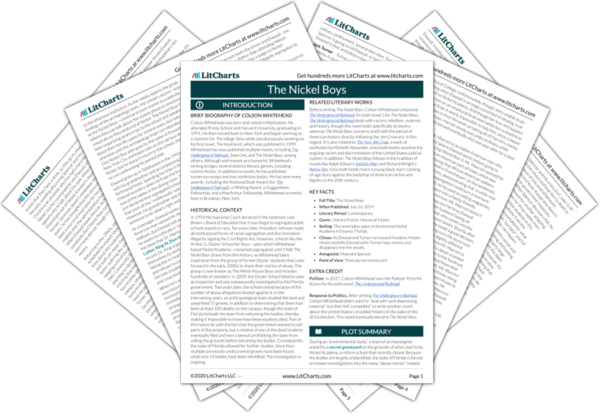It’s noteworthy that Harper is the person to shoot Elwood, since he has previously presented himself as something of a friend to both Elwood and Turner and suggested that he felt empathy for their bad luck. Now, though, it seems as if this friendliness has been nothing but an act, perhaps something Harper does to make himself feel better about the fact that he is just as authoritarian and oppressive as any other staff member at Nickel. On a separate note, this scene is intentionally confusing, at least in terms of how it affects the novel’s overall narrative—after all, readers know that Elwood later lives in New York City and that his friend is the one who dies, not him. However, neither of these plot points aligns with what has just happened in this scene.
